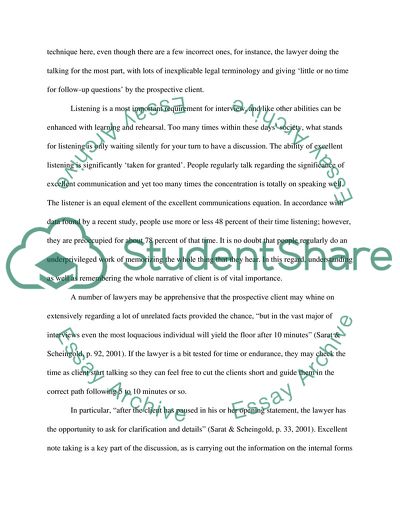Cite this document
(“Interviewing Skills in Legal Practice Essay Example | Topics and Well Written Essays - 1500 words”, n.d.)
Retrieved from https://studentshare.org/law/1430990-the-importance-of-excellent-interviewing-skills-in-legal-practice
Retrieved from https://studentshare.org/law/1430990-the-importance-of-excellent-interviewing-skills-in-legal-practice
(Interviewing Skills in Legal Practice Essay Example | Topics and Well Written Essays - 1500 Words)
https://studentshare.org/law/1430990-the-importance-of-excellent-interviewing-skills-in-legal-practice.
https://studentshare.org/law/1430990-the-importance-of-excellent-interviewing-skills-in-legal-practice.
“Interviewing Skills in Legal Practice Essay Example | Topics and Well Written Essays - 1500 Words”, n.d. https://studentshare.org/law/1430990-the-importance-of-excellent-interviewing-skills-in-legal-practice.


